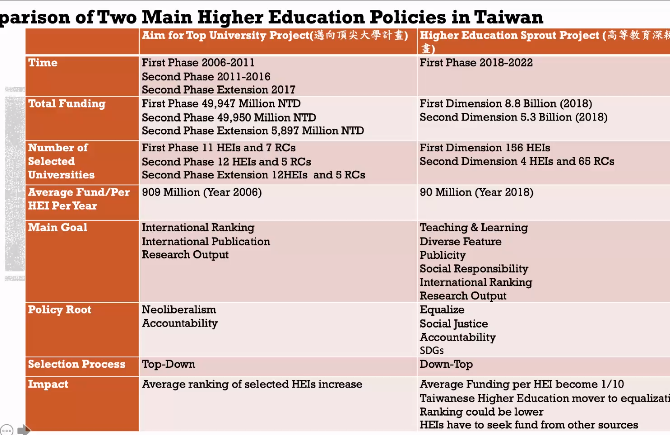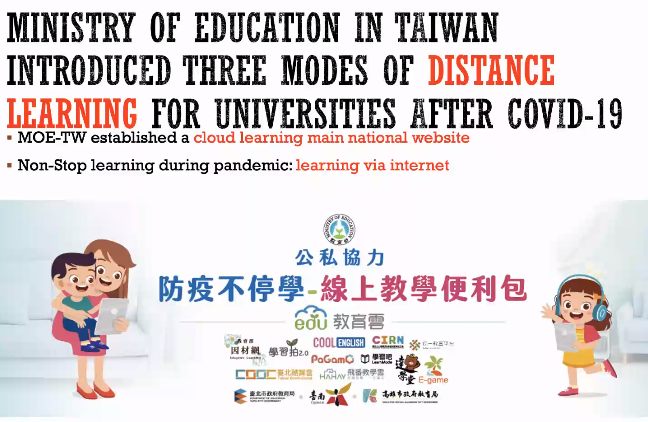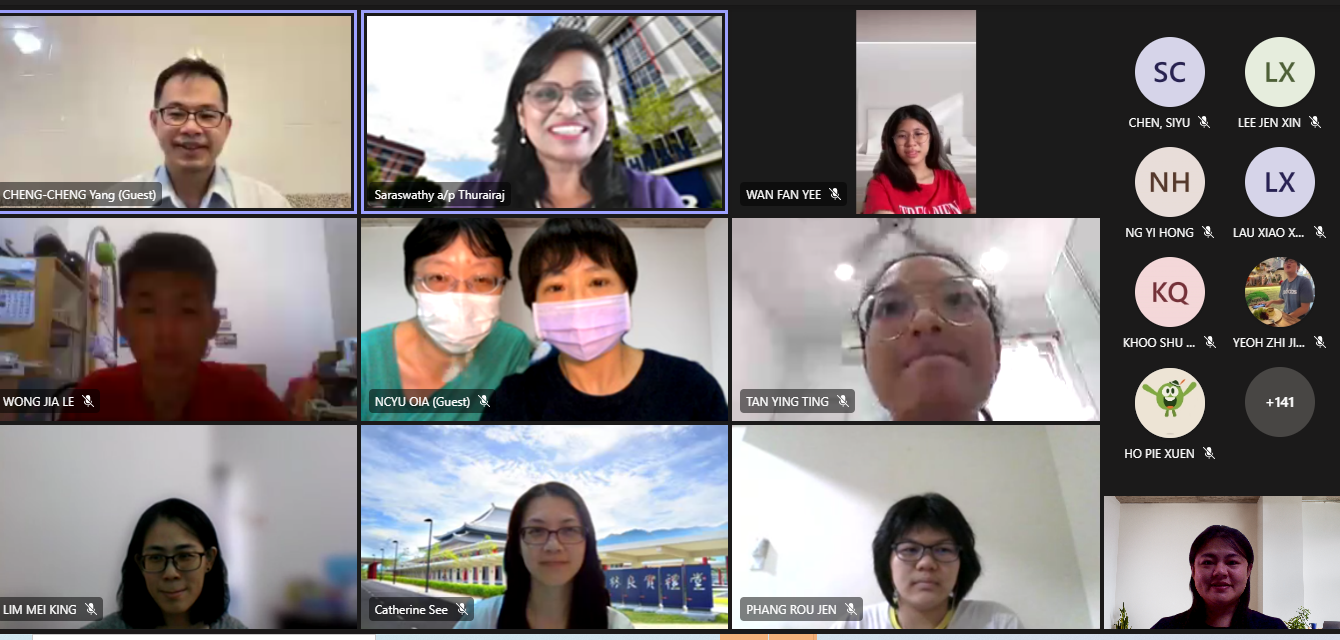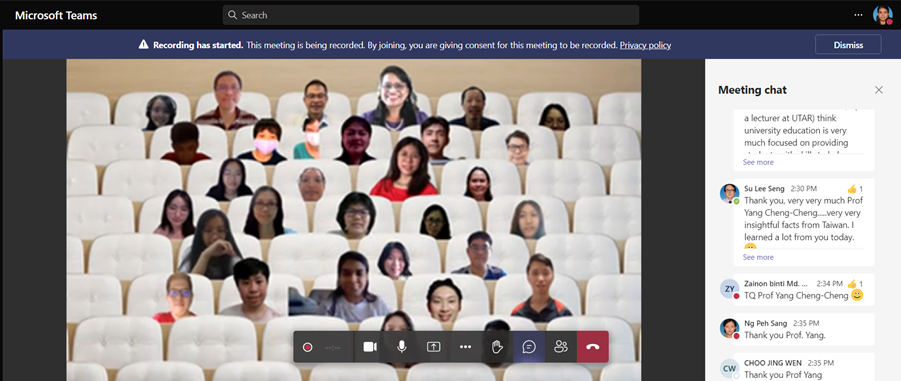
Prof Yang sharing the transformation of higher education in Taiwan
UTAR Centre for Learning and Teaching (CLT) organised a virtual talk titled “Transformations of Teaching and Learning in Higher Education of Taiwan” on 29 October 2021 via MS Team.
The webinar was conducted by National Chiayi University (NCYU) Taiwan Global Master Programme of Teaching Profession CEO-cum-Master Programme of Educational Administration and Policy Development Prof Dr Jason Yang Cheng-Cheng. It saw more than 200 participants consisting of students and staff. The moderator was Dr T. Saraswathy from CLT.
Prof Yang graduated with a PhD from UCLA. He is part of the Editorial Board of Higher Education Evaluation and Development (HEEACT Journal), Editorial Board of International Journal of Educational Development (SSCI Journal); Secretary-Chief of Chinese Taipei Comparative Education Society and Visiting Scholar of Center for Higher Education Research at Nagoya University, Japan. His areas of expertise are higher education and internationalisation.
He first briefly introduced Taiwan’s higher education system and current development. He said, “There are currently 158 higher education institutions in Taiwan which include university, college and junior college. The Taiwan Ministry of Education has proposed the Higher Education Deep Root Project to enhance equality + local + international + excellence.”

Comparison between two main higher education policies in Taiwan
Prof Yang then made a comparison between ‘Aim for Top University Project’ and ‘Higher Education Sprout Project’, the two main higher education policies in Taiwan, and explained, “The main goal of the Higher Education Sprout Project is to focus more on social responsibility, such as response to the Sustainable Development Goals (SDGs), to help the local industry and community development. This is slightly different from the previous project which pursues on international ranking.”
Prof Yang elaborating the case study on University C
Further on, “A Case Study about Postgraduate Education Change in Taiwan” was discussed to provide participants a deeper understanding of the transformation and challenges of postgraduate education in Taiwan. He revealed, “Master’s education is transforming globally in different ways. These include an increase in the number of students, the diversity of programmes offered and the difference in modes of delivery. And we found that most studies tend to explore the massification process and outcomes of the higher education system in Taiwan. We have conducted the research by interviewing 15 senior professors who have long teaching experiences of master’s programmes in the academic disciplines of education, social science, management and engineering at a university (University C) in Taiwan. They were interviewed about their perspectives on the changes in the factors of enrollment criterion, teaching modalities, learning process, graduation standard, student-teacher relationship, and challenges and prospects.”

Measures introduced by Taiwan’s Education Ministry to combat Covid-19
He also shared the actions, precautions and experiences of Taiwan’s higher education institutions in facing and overcoming the pandemic challenges such as education policies, on-campus strategies for combating the Covid-19, online/distance learning, teaching practice, and also the Covid-19 impacts on internationalisation of higher education in Taiwan. “The pandemic has brought significant changes to Taiwan’s higher education especially on teaching and learning,” he concluded.
During the Q&A session, Prof Yang discussed topics related to the challenges of educators during the pandemic and how to overcome them; popular programmes for the job market in Taiwan; the transformation of Taiwan’s higher education institutions in 10 years; the difference between Malaysia and Taiwan’s education system; the challenges of private higher education institutions in Taiwan; pedagogy for online teaching; industry-academia collaboration and many more. It provided participants with a deeper understanding of Taiwan’s higher education system.

Prof Yang (top left) and participants

Participants thanking Prof Yang for his insightful talk
© 2021 UNIVERSITI TUNKU ABDUL RAHMAN DU012(A).
Wholly owned by UTAR Education Foundation (200201010564(578227-M)) LEGAL STATEMENT TERM OF USAGE PRIVACY NOTICE